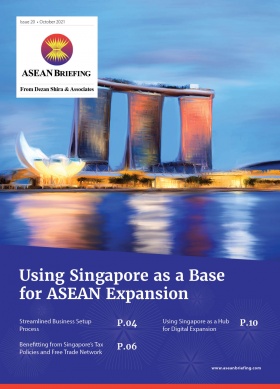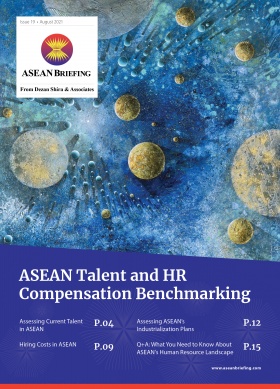Indonesia’s Second Home Visa: What are the Requirements?
Indonesia has announced second home visas, the first of its kind for the country, which will allow foreigners to stay for between five to 10 years. One of the requirements for the visa is that an applicant must have a minimum of US$130,000 deposited in their bank account.
Indonesia announced a new type of long-stay visa – the ‘second home visa’ – which will allow foreigners to stay for between five to 10 years in the country. The government has said that applicants must have a bank deposit of at least 2 billion rupiah (US$130,000) to be eligible.
The program is intended to attract wealthy foreigners to Indonesia. There have been reports that the program will be Bali-centered, but there has been no indication from the government that it is limited to a particular province. Unlike Malaysia where some provinces have autonomy on immigration rules, Indonesia’s immigration policy is administered by the central government.
In 2016, the government announced its plan to develop ’10 new Bali’s’ across Indonesia, in the hope to attract foreign tourists to other parts of the country. Of the 16 million foreign tourists to visit Indonesia in 2019, 6.23 million visited Bali.
What are the requirements for Indonesia’s second home visa?
The required documents are:
- Proof of funds of at least 2 billion rupiah (US$130,000);
- A valid passport of at least 36 months;
- Recent color photograph 4cm x 6 cm; and
- Curriculum vitae.
The two billion rupiah is to be deposited in an Indonesian bank account and cannot be withdrawn so long as the visa is active.
What about family members of second-home visa holders?
Family members of second-home visa holders can also obtain this visa by submitting the following documents to the Directorate General of Immigration.
- A valid passport of at least 36 months;
- A legal second home visa or second home temporary/limited stay permit owned by husband, wife, children, or parents which is still valid;
- Recent color photograph 4cm x 6 cm; and
- Proof of having a familial relationship with the foreign national who holds the second home visa in the form of a marriage certificate or birth certificate. The marriage certificate or birth certificate needs to be translated into Bahasa Indonesia by an official translator if they are not already in English.
Where are Indonesia’s 10 new Balis?
The 10 new Balis includes:
- Belitung (Bangka Belitung Islands Province)
- Borobudur Temple (Central Java Province)
- Labuan Bajo (East Nusa Tenggara Province)
- Lake Toba (North Sumatra Province)
- Mandalika (West Nusa Tenggara Province)
- Morotai (North Maluku Province)
- Mount Bromo (East Java Province)
- Tanjung Lesung (Banten Province)
- Thousand Islands (Jakarta Province)
- Wakatobi (Southeast Sulawesi Province)
Indonesia joins its Southeast Asian neighbors in issuing new visa types
Indonesia joins other countries in Southeast Asia in attracting foreign visitors through new long-term visa programs.
Thailand
Flexible Plus Program
In March 2022, Thailand officially launched the Flexible Plus Program in a bid to attract high-net-worth foreign investors. The program is only open to Thailand Privilege Card members, and offers international investors the ability to convert their privilege entry visa into a non-immigrant (B) visa, which will then enable them to apply for a work permit.
The program is supervised by the Thailand Privilege Card Co. Ltd, a state-owned company under the supervision of the Tourism Authority of Thailand (TAT), a government agency mandated to promote Thailand’s tourism industry.
The Thailand Privilege Card company offers high-value foreign investors a ‘privilege entry visa’ that allows the holder to travel in and out of Thailand without the need for a re-entry permit. Foreign investors must pay a membership fee of up to 1 million baht (US$29,164) to receive the card and the visa is valid for between five and 20 years, depending on the card type. Further, holders of this visa are provided a variety of benefits and services that facilitate their stay in the country, ranging from airport transport to annual health checks.
Incentives to attract foreign investors, professionals, and retirees
Thailand’s cabinet passed a resolution on September 14, 2021, introducing immigration, tax, and land ownership incentives aimed at foreign investors and skilled professionals. The incentives were part of an effort to stimulate Thailand’s economy, which has been badly impacted by the COVID-19 pandemic.
Qualified applicants can receive a 10-year long-term resident visa to live in Thailand, including for their spouses and children. Qualified applicants will also be issued an automatic work permit. This is a new type of visa that did not previously exist in Thailand.
Further, qualified applicants will be able to enjoy the same income tax rates as Thai citizens, as well as tax exemptions for income earned abroad. Further, they can apply for a 17 percent fixed income tax rate in accordance with the Eastern Economic Corridor scheme.
Singapore
Overseas Network & Expertise Pass
The Overseas Network & Expertise Pass, which allows high-earners and achievers to live in Singapore without the need to secure employment first. Applications will open from January 1, 2023, and is applicable to top talent in all sectors.
Applicants for the Overseas Networks & Expertise Pass will need to earn least S$30,000 (US$21,300) per month although individuals with outstanding achievements in the field of research and academia, science and technology, sports, and arts and culture, can also qualify even if they do not meet the qualifying salary.
Malaysia
Digital Nomad Visa
Malaysia issued a special work permit specifically for digital nomads called De Rantau. The program aims to attract foreign and local digital professionals to work in the country for between three and 12 months. Applications were open from October 1, 2022.
Digital freelancers or independent contractors must show an active project contract with a duration of more than three months. These can be in the form of multiple contracts, and the clientele can be foreign or Malaysian companies. The annual income of a foreign digital nomad must be more than US$24,000, while it should be more than 36,000 ringgit (US$7,863) for local digital nomads.
PLS@XPATS
Malaysia also launched a new social visit pass named PLS@XPATS, which allows social visit pass holders to work in the country for up to 30 days. The nature of the work must be considered critical or urgent and is only allowed in selected sectors, such as education, construction, and manufacturing, among others.
Applicants of the PLS@XPATS pass can only work under these selected sectors:
- Government sector;
- Government link companies (companies in which the Malaysian government has a controlling stake); or
- The private sector but under the following categories:
- Manufacturing;
- Security and defense;
- Oil, gas, and energy;
- Healthcare;
- Finance and banking;
- Construction;
- Information, technology, and infrastructure;
- Tourism;
- Wholesale and retail;
- Electrical and electronics;
- Business services;
- Aviation;
- Education; and
- Business services.
About Us
ASEAN Briefing is produced by Dezan Shira & Associates. The firm assists foreign investors throughout Asia and maintains offices throughout ASEAN, including in Singapore, Hanoi, Ho Chi Minh City, and Da Nang in Vietnam, in addition to Jakarta, in Indonesia. We also have partner firms in Malaysia, the Philippines, and Thailand as well as our practices in China and India. Please contact us at asean@dezshira.com or visit our website at www.dezshira.com.
- Previous Article Increased Oversight in Indonesia’s Peer-to-Peer Lending Sector
- Next Article Indonesia’s Top Sectors to Watch for in 2023








